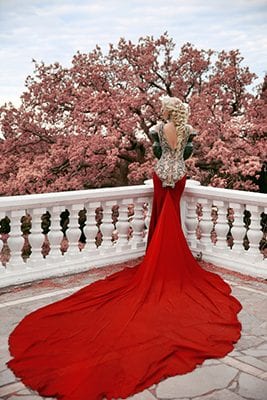‘Epic’ romance: Redefining a classic term
‘Epic’ romance: Redefining a classic term
‘Epic’ romance: Redefining a classic term
-
Hannah
-
Hannah

This week, I was reading a review of my new novel, Masquerade, when a particular word jumped out at me from the page: epic. It is a word I’ve come across several times in reviews of my books, not least in The Sun newspaper’s review of my novel The Echoes of Love: ‘An epic love story that is beautifully told.’
There was a time in my life when I came across that word frequently: when I was studying literature at university. Only back then, the word epic had different connotations.
An epic, in the original sense, is a genre of classical Greek poetry (the word epic was coined in the16th centuryand came from the Greekepikos, fromepos, meaning‘word, song’). The following conventions are key to the epic:
- It is a long narrative about a serious subject.
- The tone and style are elevated, dignified.
- The hero is quite literally a hero, whose success or failure determines the fate of his people.
- The story takes place in the past, and across a vast setting.
In this sense, the most well-known epics are the Iliad and the Odyssey. Later non-Greek works,like Milton’s Paradise Lost, have also been classed as epics under these criteria by scholars.
Outside of pure academia, the word epic came to be applied to a long work (film or book) depicting heroic deeds and adventures and/or covering a long period of time. For example, the Lord of the Rings books are often categorised as epic.
It was the work of the movies that really began the transformation of the term. ‘Epic’ became a style of film-making that was ambitious: think sweeping scope, vivid and important setting, inspiring spectacle, transporting viewers to another place and time. Still, the hero (or heroine) is core to the work: often epic protagonists are major historical characters, for example. But equally, the hero/heroine can be less notable – as in Gone with the Wind – but the story, the setting, the directing, the acting: all make for a memorable epic.
Whether the epic film is historical or not, history is important. The action happens at a pivotal time in history, often during war or some other societal crisis. With so much story to tell, the film is often long – and it is certainly lavish, with big-name stars, exquisite costumes, amazing settings, dramatic music and, usually, a big budget employed.
The epic was very popular in cinema in the 1960s – still, Cleopatra(1963) and Doctor Zhivago(1965) are among my favourite films. But to this day they hold appeal. Modern epics include Braveheart, Titanic, Gladiator, Atonement, Australia and Les Misérables, and a range of science-fiction films like Star Wars. Producers and directors continue to make epic films quite simply because they are lucrative – in short, audiences love them!
When I look at my own writing, I do see the influence of epic cinema – and also the literature style that evolved:
- Setting: My own novels have vivid, exotic, sweeping panoramas. Burning Embers depicts the rugged beauty of Kenya; The Echoes of Love the multi-faceted city of Venice; and Indiscretion and Masquerade the stunning scenery of Andalucia and its cities.
- Spectacle: They offer dramatic spectacles for the reader – the Running of the Bulls in Pamplona, for example, in Masquerade. I love to really encapsulate all that is exciting and original and theatrical about a place.
- History:Burning Embers is set when Kenya is newly independent – as is Masquerade, following Franco’s death. The Echoes of Love is set at the turn of the millennium, a time of great excitement and change worldwide, and Indiscretion’s story takes place post-World War Two, when Spain was oppressed.
- Lavish detail: Well, I do try to create colour in my story worlds! Down to my heroine’s dress and the meal she shares with a lover, I think carefully about all the details.
- Grandeur: Another important element of the epic. This is tempered a little in my books: my heroines are real women you can engage with. But there is a touch of luxury in the setting and the events: masked balls, especially!
Recently, the word ‘epic’ has been redefined again by a new generation to mean, in informal use, ‘really, really good’, leaving the use of the term open to interpretation. Either way, when I read a review of my books and see that word ‘epic’, I am left with a smile on my face.
